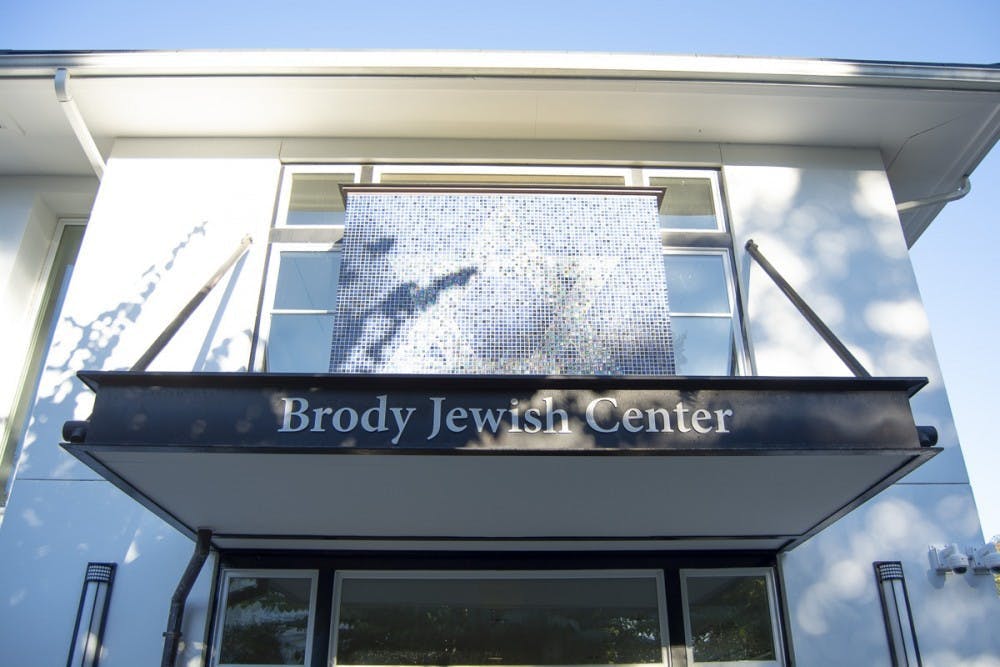The Jewish Leadership Advisory Board, an elected organization of Jewish student leaders, criticized the Board of Visitors for politicizing the experiences of Jewish students at the University in an April 3 letter acquired by The Cavalier Daily. The letter came after the March 1 meeting of the Board of Visitors, where Bert Ellis, Board member and College and Darden alumnus, criticized the University and Rector Robert Hardie for their responses to allegations of rising antisemitism on Grounds.
JLAB is composed of students elected to govern the Hillel Jewish Leadership Council. This organization plans programming for Jewish students on Grounds, and carries out the Brody Jewish Center’s self-proclaimed mission of empowering Jewish students to take ownership of their identity. According to the letter sent to the Board of Visitors, JLAB oversees the largest Jewish organization of Jewish students in Charlottesville, serving roughly 700 students each year with over 100 students regularly attending weekly events.
The letter comes shortly after the Anti-Defamation League gave the University an “F” grade on a campus antisemitism report card — a ranking given to only 11 other higher education institutions. In the letter, JLAB said they were saddened by the use of Jewish students as tools in broader political issues. They also said that antisemitism is an important concern at the University, but that it is not as prevalent of an issue as some unaffiliated with the University community believe it to be.
“We acknowledge that antisemitism is a top concern at U.Va., especially among parents, although it is not as widespread as some outside of the University community believe,” JLAB wrote. “It saddens us to see concerted efforts to exploit Jewish students as pawns for political agendas. Such efforts threaten the safety and well-being of Jewish students.”
After the March 1 Board meeting, organizations including conservative alumni group the Jefferson Council criticized Hardie for refusing to engage with Ellis on the subject of antisemitism on Grounds during the Board’s open session. A billboard truck of unknown affiliation that criticized Hardie’s response to antisemitism at the University and called for his resignation was seen around Grounds March 26. The JLAB letter opposed this call, rejecting the notion that Hardie acted in any way that would harm Jewish students. Instead they said that it would be a shame if “deceitful politics” forced Hardie to resign.
While the letter was largely supportive of University administration, JLAB did criticize the University Board of Elections, a student-run organization which oversees all University-wide student elections, for failing to adhere to its own rules during the recent spring elections.
During the elections, Referendum 1 passed, which called on the University to submit itself to an external audit of its investment portfolio and divest from any companies found to profit from Israeli human rights violations.
Following the elections, the UBE released a statement asserting that while the referendum failed to adhere to all of UBE’s policies during the campaigning process, neither of the two infractions were done in bad faith, and the referendum was thus not removed from the ballot. The specific infractions included listing “University of Virginia Apartheid Divest” as the referendum’s original sponsor despite it not being a formally recognized student organization, as well as failing to include a “paid-for-by-attribution” on early posters supporting the referendum.
JLAB said that they maintained steadfast in their opposition to the referendum, which they said was both divisive and offensive in nature.
Beyond the referendum, the letter described free speech and academic discourse as critical components of higher education at the University, but said that a small number of students and faculty have acted with ignorance and hate when discussing sensitive topics. Nonetheless, JLAB said they feel supported by the University administration’s approach to issues regarding Jewish students on Grounds. They said that in the few instances of threats to students safety, they have been confident in and happy with the leadership of Timothy Longo, chief of the University Police Department and vice president for safety and security.
JLAB said that although the University has much to improve on, they encouraged Board members concerned about the Jewish student experience on Grounds to contact them so as to better understand the lived realities of Jewish students at the University.
“Moving forward, there is room for the University to improve,” they said. “A key path towards this progress is engagement with the broader Jewish community before the Board of Visitors embarks on political quarrels which mischaracterize the reality of Jewish life on Grounds.”
This is a developing story. Updates will be made to this article as additional information becomes available.







